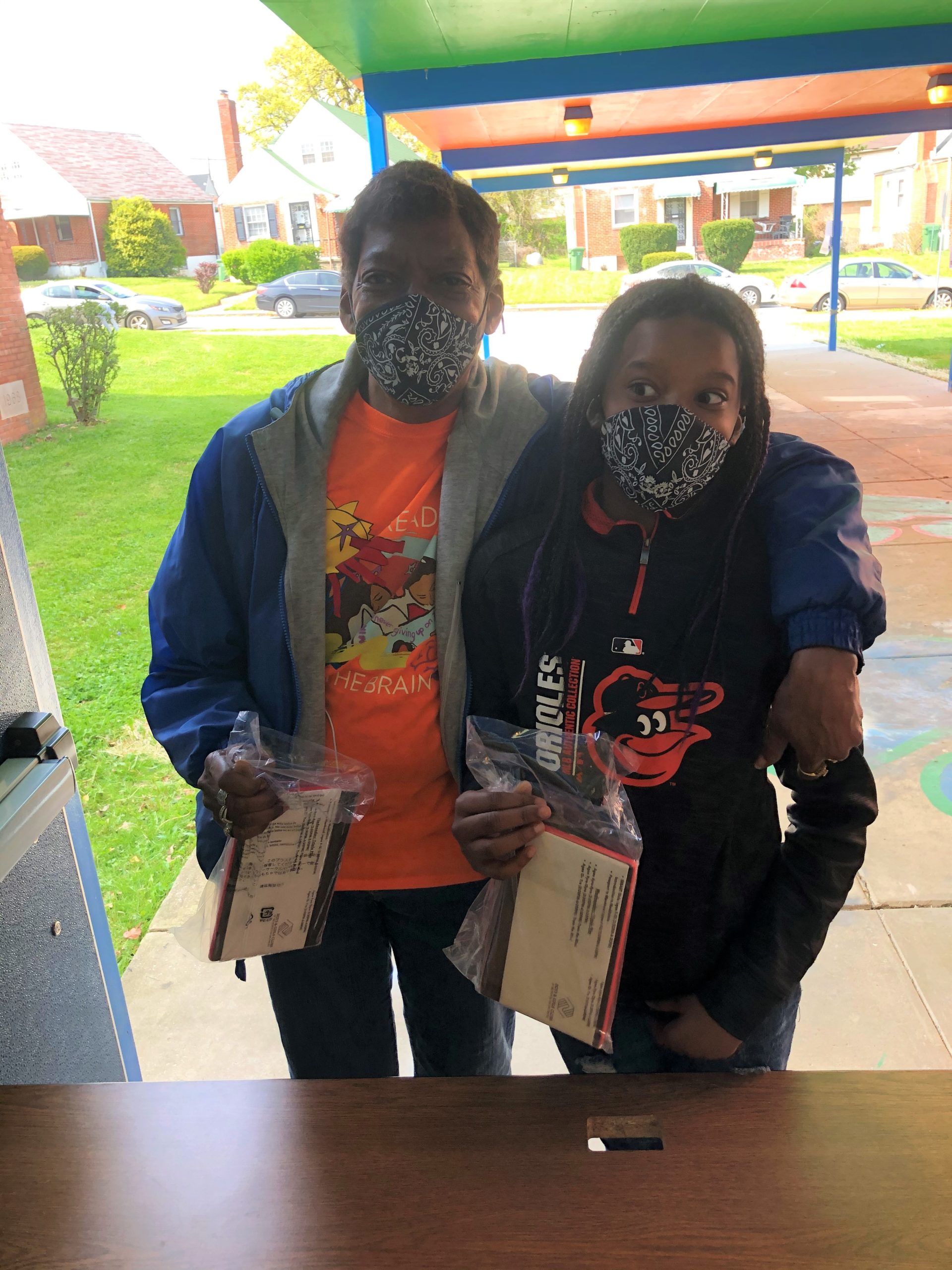Crown Castle has partnered with Baltimore’s Boys and Girls Clubs to bridge the digital divide.
With the assistance of Crown Castle, a Houston-based firm that creates the infrastructure telecom companies use to provide phone and internet service, Boys & Girls Clubs of Metropolitan Baltimore (BGCMB) was able to provide 50 new tablets to their youth members and train staff in over 500 hours of youth development training in the virtual environment through Crown Castle’s Connected By Good initiative.

BGCMB members receiving tablets (Courtesy photo)
BGCMB’s cornerstone programs that include discussion of coming-of-age topics, including “Passport to Manhood” or “Smart Girl,” were shifted to a virtual format during the COVID-19 pandemic. From 3 – 7 p.m., groups of four or five youth get together on a Zoom call with two instructors. They also have dance classes or STEM classes like they would if they were physically at a Boys and Girls Club. The org also opened its doors for 13 hours a day to provide childcare for essential workers at one of their clubs.
Jeff Breslin, CEO of BGCMB, said that close to 50% of members need some kind of assistance with connecting to their virtual programs.
BGCMB learned of these needs by sending out staff to do socially distanced “screen door” check-ins. Staff would knock, back away from the door, then ask their members if there was anything they needed to be involved in BGCMB’s virtual programming, whether it be food or digital access.
That digital assistance could be more nuanced than not having a device or internet in the home. They could have a laptop or desktop, but what if there’s three kids in the home and the parents work from home. That could mean one device would split between as many as five people, and that’s not even taking into account the internet speeds of five connected devices live streaming content.
After school programs are integral to social development, but the effects of large gaps of social interaction with other youth are yet to be known.
“The challenge there is we don’t know,” said Breslin,. “We can’t say that every single one of our kids has logged on every single time.” Breslin believes this is true across the city.
In Baltimore City Public Schools, the decision came last week that distance learning will remain in place for the start of the school year in the fall. This led the school district to purchase 35,000 laptops and hotspots. To learn more about attendance, this reporter sent in a public information request asking for attendance records during the pandemic for distanced learning from the Baltimore City Public Schools. We received back a response that stated the district is in the process of compiling the data of “two different time periods [of distanced learning] into a set of comprehensive attendance data.” In their words, this is “a manual and labor intensive process.”
The big picture: Community stakeholders across the city that aren’t sure if students are logging on and participating in school, after school programs or anything where there’s a sense of community with supportive adults. With virtual learning remaining with us as the pandemic’s social distancing requirements continue, it also raises the question: How are programs ensuring participation?
“There’s a lot of unknown and I think that’s the scary part,” said Breslin about the new normal of distanced learning and youth development. “And we as a society have to get all the other stuff, all the other excuses and barriers out of the way, so we can focus on supporting those that need it the most, and supporting those that may not have logged on.”
Donte Kirby is a 2020-2022 corps member for Report for America, an initiative of The Groundtruth Project that pairs young journalists with local newsrooms. This position is supported by the Robert W. Deutsch Foundation.Join our growing Slack community
Join 5,000 tech professionals and entrepreneurs in our community Slack today!
Donate to the Journalism Fund
Your support powers our independent journalism. Unlike most business-media outlets, we don’t have a paywall. Instead, we count on your personal and organizational contributions.

Comcast introduces ultra-low lag Xfinity internet that boosts experiences with Meta, NVIDIA and Valve

Maryland firms score $5M to manufacture everything from soup to nanofiber

This Week in Jobs: Add these 26 tech career opportunities to your vision board


